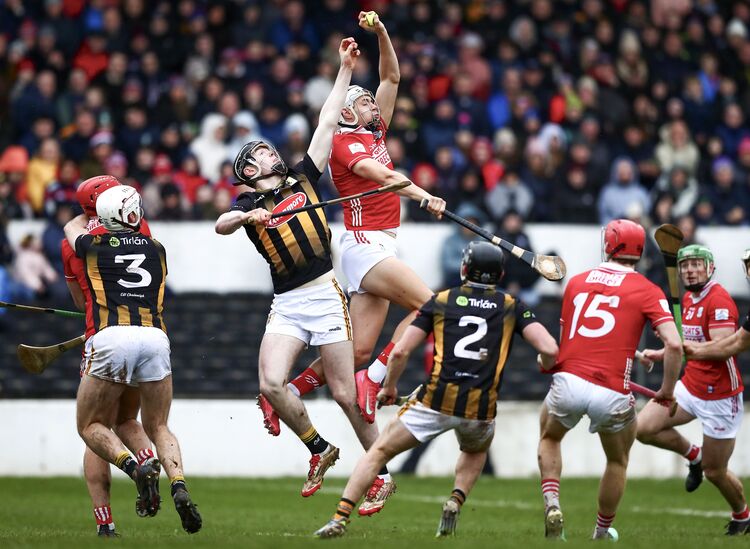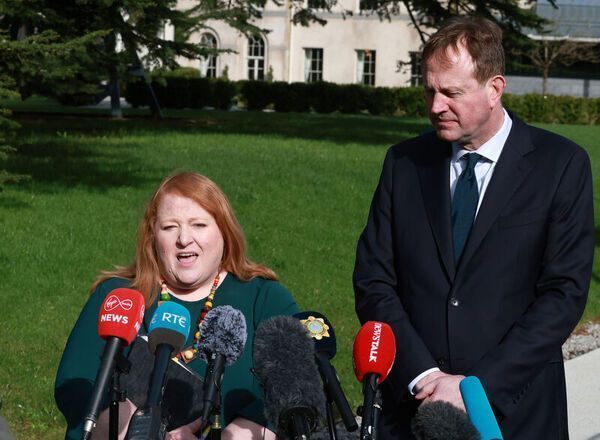By Daniel Neely
Frank Harte was one of Ireland’s greatest traditional singers and perhaps its greatest song collector. A source for musicians like Christy Moore, Andy Irvine, Mick Moloney, Karan Casey, and Niamh Parsons, his direct influence and legacy can be heard in the work and songs of more recent bands like Lynched and singers such as Daoiri Farrell. Indeed, it is hard to underestimate his importance in the world of Irish song.
In truth, though, there isn’t a singer of note who doesn’t appreciate the work Harte has done. His albums, most of which feature accompaniment by the great Dónal Lunny, are highly influential and present Irish song through a number of historical perspectives and subject areas, including the street songs of Dublin, songs about the 1798 rebellion, and songs about Napoleon Bonaparte. He died in 2005 having just completed the bulk of the work on “There's Gangs of Them Digging,” an exceptional album of Irish laboring songs. It seemed as though it was his last.
However, he’d yet another album planned at the time, one of love songs. Unfortunately, only the list of songs he’d intended for the project existed. But Harte’s daughter Orla took the herculean task of realizing her father’s vision by sourcing recordings of the songs he’d planned, compiling a booklet from his lecture notes, and preparing it all for release. The result is “When Adam Was in Paradise: Traditional Songs of Love and Courtship,” a touching reminder of Harte’s brilliance that will inspire his fans and singers alike.
https://youtu.be/soZ2LS30An4
Listeners will find a great deal here to relish. The first two tracks, “Donal Og” and “Adam in Paradise” are beautifully rendered and have the feel of classic “Harte” tracks, especially the latter on which Lunny shines. Lunny and Harte have also done something really quite interesting with Mickey MacConnell’s song “The Lambeg Drummer.” A song of love and religious divide, the melodic and harmonic settings they’ve brought to it convey a sense of longing that embellishes the song’s subject matter – it’s a major standout for me. “As I Roved Out” is lovely as well, and showcases Harte and Lunny’s chemistry very well.
Part of the challenge of putting this album together, we learn from the liner notes, was that love songs weren’t a regular part of Harte’s performances, so sourcing material was a challenge. I wonder, then, if tracks like “Matt Hyland” is the same version as on his “Dublin Street Songs” album and “Woods of Truagh” that which is on his album “And Listen to my Song.” Although the songs themselves won’t be new to Harte fans, they are still wonderful, make contextual sense, and add to the collection’s sense of completeness.
One of the album’s finest tracks is “Sweet Sorrow in the Wind,” on which he’s accompanied by West Virginia singer Molly Andrews. Although it was recorded in Ireland, its Appalachian feel recalls Harte’s years at the recently-ended Augusta Irish Week in Elkins, WV. It’s a very powerful track. (Incidentally, two of the albums tracks, “Aisy & Slow” and “True Lover John,” were, in fact, recorded at Augusta, which alums of the week will surely be interested in hearing.)
Although it looks and “feels” very much like a Frank Harte album (the Mary Swanzy painting they chose for the cover is perfect), there are some important differences to note. First, because Harte passed before he really had a chance to begin work on the album, its contents are not studio quality, but rather a compilation of mostly live, unvarnished tracks, with the bulk recorded in 2004 at a concert at Cork’s Bantry House. This means the sound quality and performance standard varies somewhat from track to track and gives the album, at times, the feel of a field recording. Second, the track essays are drawn from Harte’s unaltered lecture notes. While they are great in themselves and provide “Hartean” insight on each song, they are perhaps less polished than with previous albums. Neither of these things, I feel, distract from the power and majesty of Frank (or Orla’s) efforts, but they are worth noting.
“When Adam Was in Paradise” is a special album that comes at a time when the world could really use more love songs. It is a must have for Harte fans, but also for anyone interested in “pure drop” singing. If you’re unfamiliar with Harte’s work, you should absolutely rush out and buy all of it and this album is an excellent access point. It sits well alongside Harte’s other albums in terms of scope, and it gives a wonderful cross section of what kind of singer Harte was. Highly recommended. “When Adam Was in Paradise” is available from frankharte.net.









